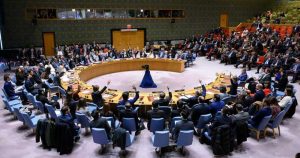
Well, okay, one final note as we view the UN80 anniversary, the General Assembly High-level Week, a Climate Summit, all in the rearview mirror.
I guess I start with the thought, not happily, that other than the gridlock in the streets of Manhattan and us ‘fussy’ observers and such, there is little optimism in the actions taken and not much positive to report on the recently concluded UN meetings. As Colum Lynch reported in Devex from these events:
“But the question lingering in United Nations corridors remains the same as it was when the U.N.’s 80th anniversary summit began: What does the future hold for the United Nations, particularly its development, humanitarian, and human rights operations? And what will it look like without the financial support of the American taxpayer?”
Now it’s not that there weren’t numerous announcements. In a new UN Newsletter on the UN Pact for the Future, here a small sample:
“In this issue you’ll find:
- New platforms on artificial intelligence mandated by the Pact
- Highlights from the first Biennial Summit on financing for development
- Findings from the UN report on military expenditure and the SDGs
- A snapshot of Pact-related events during UNGA80”
So efforts continue but the crisis is upon the institution. I start with the current crisis and in the immediate circumstances, a liquidity crisis. As Lynch writes:
“But the U.N.’s current financial crisis has little to do with its own bureaucratic shortcomings. The U.N. is straining under a massive liquidity crisis, brought on by $1.5 billion in unpaid U.S. dues to the world body. Complicating matters, the U.N.’s two largest contributors, China and the United States, pay their dues late in the year, squeezing the U.N.’s cash reserves.”
““The cash shortage that the secretariat is facing right now [is primarily] the result of two member states, the top two financial contributors, the United States and China, who collectively provide 42% of the regular budget,” said Eugene Chen, a former U.N. official and senior fellow at the U.N. University Centre for Policy Research, who fears the cuts will further undermine U.N. ability to fulfill its mission. “If the problem you’re facing is that you are missing 42% of whatever your budget is, shrinking the overall budget is actually not the solution,” Chen said in a discussion at the Devex Impact House.”
Which isn’t to say that there is not an organizational crisis. As explained by Norway’s minister of foreign affairs, Barth Eide:
“[the] Guterres’ plan, which calls for hundreds of millions of dollars in cuts, “points in the right direction. But we could do much more.”
“You need to instill a sense that it’s a real crisis,” he said.
“Our resources are not at all aligned with the number of mandates. So you need to deal with the mandates, which is either to scrap them, to consolidate them, to merge them. … I would say I’m sure you could do with cutting one third of the organization in principle.”
“This is not a magical number, but it’s just like [an] order of magnitude,” he said”.
So a serious ‘reorg’ is required – what should the UN and its agencies be doing and what can be foregone? However, agreement on what should be this effort and agreeing on the elimination or consolidation of current mandates needs to be attacked and not just talked about.
Serious reform of the mandate process and what the UN should and can be addressing in this geopolitical multilateral environment hangs over the organization no matter what some optimistically describe. Still, there are innovations, serious proposals, that are being suggested that warrant attention at this moment. Let me start with my CWD principal, Huiyao (Henry) Wang. Henry is the founder and president of the Center for China and Globalization, a think tank in China and he joins us asa principal at CWD. Just recently Henry tackled a festering issue, the failure of the UN Security Council (UNSC) to be able to act particularly with respect to peace and security issues – today, most notably, Gaza and Ukraine. Now calls for reform of the UNSC go back for many years. But I was caught by the insight Henry recently addressed though Henry sourced it from Xi Jinping. The proposal in FP:
“At the 80th United Nations General Assembly high-level debates last week, a host of global leaders called for a more effective and representative Security Council. In the words of Finnish President Alexander Stubb: “If countries from the global south, from Latin America, from Africa, from Asia, do not get agency in the system, they will turn their backs against the United Nations.””
“But despite the Security Council’s flaws, there is no real substitute for it. If it drifts into irrelevance, this would simply remove the last vestiges of effective global coordination. The challenge, then, is not whether to reform the council, but how to do so.”
The proposal:
“It is against this backdrop that Chinese President Xi Jinping launched a new Global Governance Initiative. Xi is calling for a fairer and more inclusive multilateral system, one without double standards that places the United Nations at its core.”
“To that end, all current G-21 (formerly G-20) members should be given a seat on an expanded Security Council. This would eliminate the 10 existing rotating seats and create 16 new permanent associate seats. These new states would not have an individual veto, but together with the other four permanent members, they could override the use of the unilateral veto.”
“Previous reform efforts have stumbled over the question of how to allot new seats in the council. Here, the G-21 offers an elegant solution. It is comprised of an even mix of developed and developing countries. Using it as the basis for reform addresses some of the underrepresentation of the global south while still recognizing the enduring power of incumbents. Today, the G-21’s members comprise over 85 percent of global GDP, and has already helped coordinate multilateral responses to some of the world’s most pressing economic challenges. Under this new model the expanded U.N. Security Council would consist of Argentina, Australia, Brazil, Canada, China, France, Germany, India, Indonesia, Italy, Japan, South Korea, Mexico, Russia, Saudi Arabia, South Africa, Turkey, the United Kingdom, and the United States, along with the African Union and the European Union, which would each have one collective vote.”
“But a more substantial fix is required. To solve the problems created by the unilateral veto, we must weaken it by instituting a supermajority override. Under this proposal, if over two-thirds of the expanded Security Council, that is to say 15 of its members, and two-thirds of the General Assembly voted to override the veto of a single P5 member, the resolution in question would pass.”
“After all, if two-thirds of both bodies can agree to override a single P5 member veto, it clearly represents a broad international consensus. A singular P5 member should not be able to block a UNSC resolution passed by all other permanent members, two-thirds of the other 16 permanent associate members, and two-thirds of the 193 members in the General Assembly.”
The value of the proposal is in its easy solution to representation. The members of the G20 is so valuable – key developed and developing states, especially Global South states. And it is a way to move beyond a single veto at least as currently exists at the UNSC.
It is a very useful insight(s). Will it gain traction – given the current multilateral politics – not likely. But the insights are very helpful. And who knows, maybe not far into the future and in a healthier multilateral environment, Hmmmm.
Image Credit: Modern Diplomacy
First posted at Alan’s Newsletter – https://globalsummitryproject.substack.com/p/the-struggle-for-renewal-at-the-un

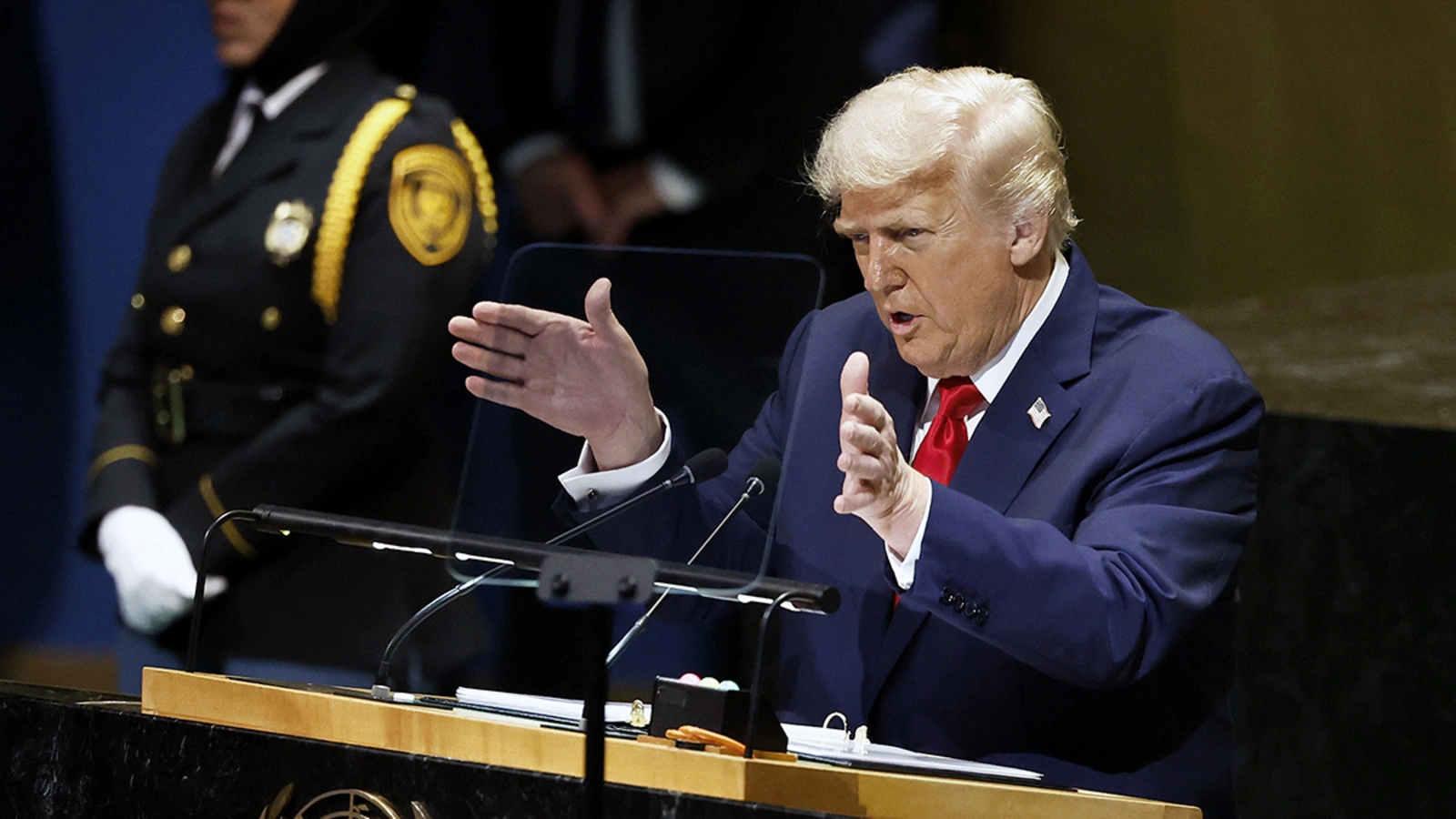
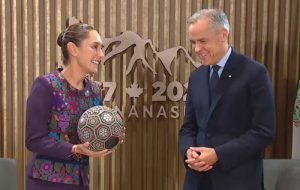
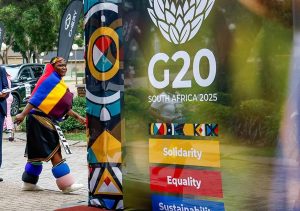

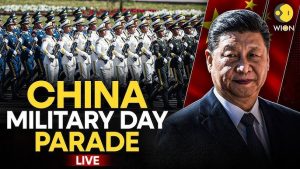
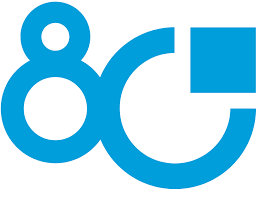

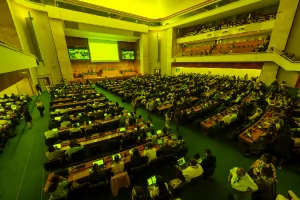
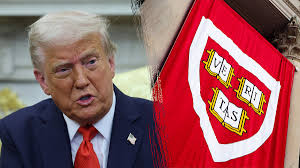 So President Trump and his minions were extremely active this past week. The President, as Bully in Chief, and his people are still going strong, especially when it comes to trade and tariffs. But there were other areas that this President and his administration pushed forward on and warrant a look. So much (re)gressive action is being taken that it is hard to keep up with it all. It is exhausting.
So President Trump and his minions were extremely active this past week. The President, as Bully in Chief, and his people are still going strong, especially when it comes to trade and tariffs. But there were other areas that this President and his administration pushed forward on and warrant a look. So much (re)gressive action is being taken that it is hard to keep up with it all. It is exhausting.